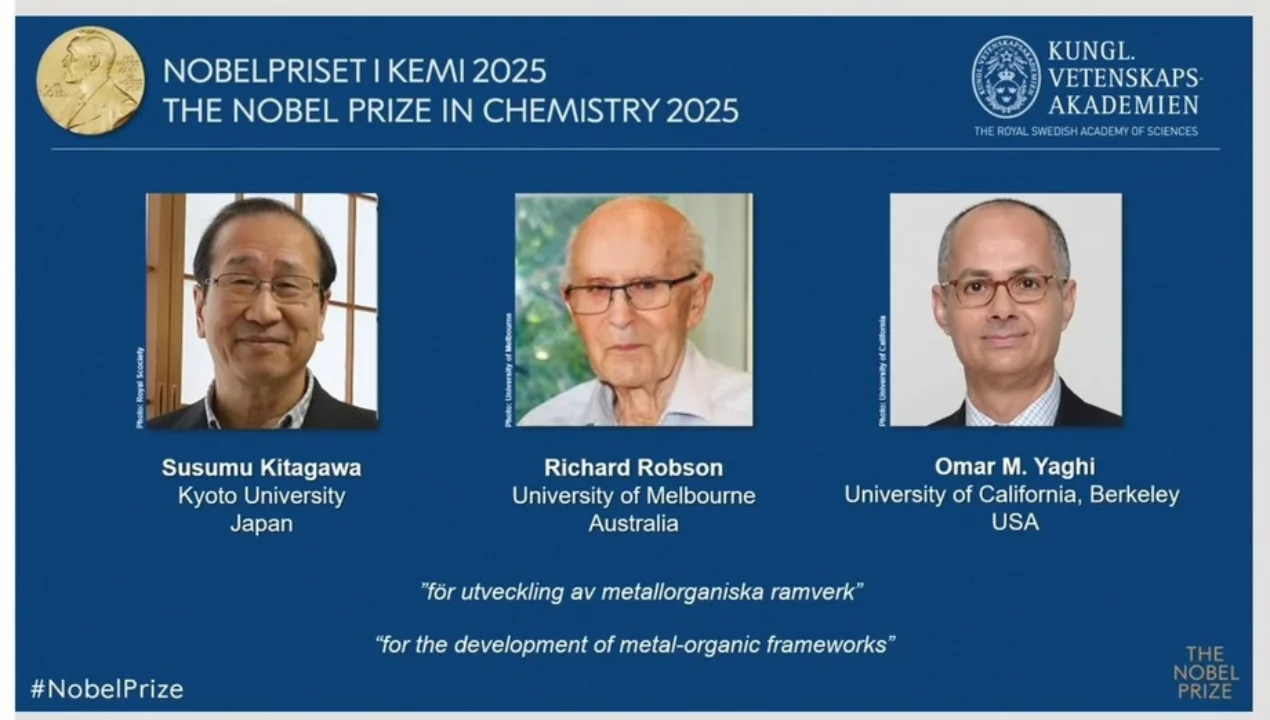Nobel Prize in Chemistry: MOF revolution, water from air, clean future

This year's Nobel Prize in Chemistry was awarded to Tsusumu Kitagawa, Richard Robson, and Omar Yaghi. They have further narrowed the gap between science and life by creating a new generation of materials - organometallic frames (MOF) - with great potential for solving global problems.
MOFs are huge "lattice" structures, consisting of metal ions and organic bonds, with an enormous number of cavities. Simply put, this is a huge "sponge" at the molecular level: gases or other chemical particles can easily pass through these pores, selectively stick together, or be stored.
Why, you ask? Areas of application are very realistic and relevant:
- In deserts, the collection of moisture from the air is a source of drinking water.
- Capturing carbon dioxide in the atmosphere serves to preserve the climate.
- Safe storage of toxic gases is beneficial for industry and safety.
- Accelerating chemical reactions is a step towards cheaper, cleaner, and more efficient technologies.
This triad built structures that demonstrate the porosity and "smart" selectivity of MOFs on a scientific basis, bringing them closer to practice. Because of this, the MOF concept left the laboratory and began to serve water supply, ecology, industrial safety, and green chemistry.
In short, Kitagawa-Robson-Yaghhi's scientific work is not just a theory, but a technology that is becoming a reliable tool for tomorrow. Humanity, through these "molecular sponges," can reach a new level in obtaining water from the air, reducing CO2, and controlling harmful substances.
Read “Zamin” on Telegram!





















